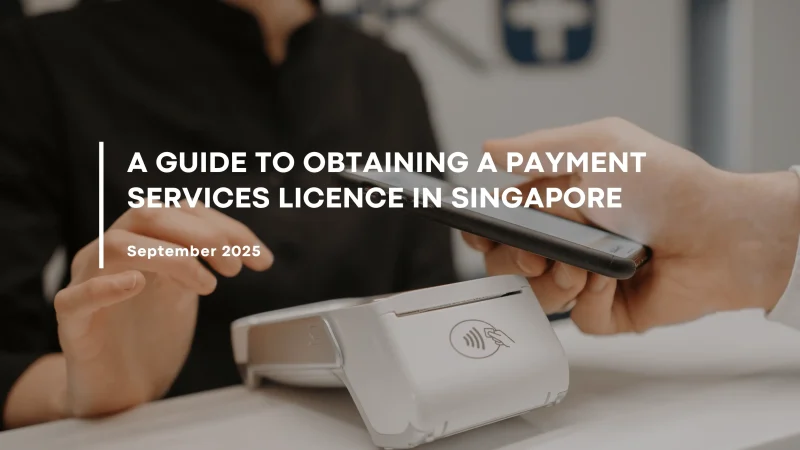Injunctions are powerful legal tools used in Singapore to prevent a party from taking a specific action or to compel a party to perform a specific act. Just recently, a high-profile case involving injunctions in Singapore is Shopee Singapore Pte Ltd v Lim Teck Yong [2024] SGHC 29. In this case, Shopee sought an interlocutory injunction to prevent a former employee from joining a competitor and soliciting clients and employees.
The Singapore High Court denied the injunction application, finding that Shopee had not established a serious case to be tried and that the restraint of trade clauses in the employment contract was not enforceable. This case highlights the importance of careful drafting of employment contracts and the challenges in enforcing restrictive covenants.
What is an Injunction? Understanding the Meaning
An injunction, also known as an “interdict” in some jurisdictions, is a court order that compels or prohibits a specific course of action. In Singapore, injunctions are a form of equitable remedy, meaning they are granted at the court’s discretion based on principles of fairness and justice.
Types of injunctions in Singapore
These are the types of injunctions in Singapore:
1. Mandatory Injunctions
These require a party to perform a specific act, such as rectifying damage or fulfilling a contractual obligation. They are typically granted in cases where inaction could cause significant harm.
2. Prohibitory Injunctions
These prevent a party from performing certain acts, such as breaching a contract or disclosing confidential information. Prohibitory injunctions are commonly used to maintain the status quo.
3. Interim or Interim Mandatory Injunctions
These are temporary injunctions granted before a trial to preserve the rights of the parties involved until the final judgment is made.
4. Quia Timet Injunctions
Issued to prevent anticipated harm that has not yet occurred but is likely to happen if no action is taken. These injunctions rely on the plaintiff proving a real and imminent threat.
5. Perpetual Injunctions
Granted after a full trial, these injunctions are permanent and enforce rights conclusively.
6. Anton Piller Orders
A specific type of injunction allowing the plaintiff to enter the defendant’s premises to inspect and seize evidence that might otherwise be destroyed.
7. Mareva Injunctions
These freeze a defendant’s assets to prevent them from being moved out of jurisdiction or dissipated before a court judgment.
H3: 8. Restraining Orders
Often used in family law or harassment cases, these injunctions prohibit certain behaviors to ensure safety or compliance.
Common Mistakes to Avoid When Seeking an Injunction
While injunctions can be a powerful tool, seeking one requires careful consideration and strategic planning. Here are some common mistakes to avoid:
- Lack of Clarity: The application for an injunction must clearly define the specific act you wish to be prevented (prohibitory injunction) or compelled (mandatory injunction). Ambiguity can lead to the court rejecting your application.
- Unrealistic Expectations: Injunctions are not a guaranteed remedy. The court will consider the merits of your case, the potential harm caused by granting the injunction, and whether there are alternative remedies available.
- Delay in Seeking Relief: The court may be less likely to grant an injunction if you have significantly delayed seeking relief.
- Insufficient Evidence: A successful injunction application requires strong evidence to support your claim of wrongdoing and the potential harm you will suffer if the injunction is not granted.
- Procedural Errors: Ensure your application adheres to all the legal and procedural requirements set out by the Singapore Courts.
Seeking Expert Guidance: The Importance of a Skilled Legal Team
Injunction applications are complex legal matters. Engaging a skilled and experienced lawyer can significantly improve your chances of success. A lawyer can help you:
- Draft a clear and well-supported application.
- Gather and present strong evidence to support your claim.
- Navigate the legal process and ensure compliance with procedural requirements.
- Effectively advocate for your position before the court.
Conclusion: Avoiding Mistakes and Achieving Success with Injunctions
Injunctions can be a valuable tool for protecting your rights and interests in Singapore. However, avoiding common mistakes is crucial for a successful application. By working with a skilled legal team at PDLegal Singapore, you can ensure your application is well-drafted, supported by strong evidence, and presented effectively in court.
Contact PDLegal Singapore today for a consultation to discuss your specific situation and explore the possibility of seeking an injunction.
FAQs
What are the factors to consider before granting an injunction?
What is the test for injunction in Singapore?
The test includes three elements: (1) a serious question to be tried, (2) proof of irreparable harm that cannot be compensated by damages, and (3) the balance of convenience favoring the granting of the injunction. These ensure fairness before a full trial.
How to get an injunction in Singapore?
To obtain an injunction, file an application with supporting affidavits in court detailing the grounds, evidence of harm, and the relief sought. A hearing is held during which the court assesses if the criteria for granting an injunction are met.
What is the main action of injunction?
The main purpose of an injunction is to compel or restrain specific actions to prevent harm or injustice, preserving the rights of the parties until a legal resolution is reached.
When can an injunction not be granted?
An injunction may be denied if damages can adequately compensate the harm, if it causes undue hardship, or if the plaintiff has unclean hands (i.e., acted unfairly or in bad faith). Lack of urgency or public interest concerns may also justify denial.
How to prove irreparable harm?
To prove irreparable harm, show that the injury is substantial, imminent, and cannot be adequately remedied by monetary compensation. This often involves demonstrating a threat to unique assets, rights, or business reputation.
What are the requisites for issuance of an injunction?
The applicant must establish (1) a prima facie case, (2) irreparable harm, and (3) that the balance of convenience favors granting the injunction. Additionally, compliance with procedural rules is essential.
What is a serious question to be tried?
A serious question to be tried arises when the claim is not frivolous or vexatious, meaning it has a reasonable prospect of success based on preliminary evidence and legal arguments.
Who may grant a preliminary injunction?
In Singapore, the High Court or State Courts can grant a preliminary injunction upon the applicant’s demonstration that the legal criteria are satisfied.
What are the grounds for a preliminary injunction?
Grounds include preventing irreparable harm, maintaining the status quo, and avoiding injustice while the case is resolved. The applicant must also show urgency and a likelihood of success.
What is Rule 58 for preliminary injunction?
Rule 58 generally governs procedures and requirements for issuing preliminary injunctions, focusing on evidence of harm, proper notice to parties, and compliance with procedural safeguards. (Note: Specifics depend on jurisdiction.)
What is a mandatory injunction?
A mandatory injunction compels a party to perform a specific act, often to reverse or remedy a prior wrongful act. It is issued in exceptional cases where other remedies are inadequate.
What are the grounds for the dissolution of an injunction or restraining order?
An injunction may be dissolved if it was improperly granted, circumstances change significantly, or the plaintiff fails to proceed with the case diligently. Abuse of process or undue hardship to the defendant are also valid grounds.
What is Rule 65 of the rules of court?
Rule 65 governs restraining orders and injunctions, specifying procedures for application, notice, and compliance. It ensures equitable relief while safeguarding the rights of all parties. (Jurisdiction-specific details vary.)
What is Rule 57 for preliminary attachment?
Rule 57 typically outlines procedures for attaching a defendant’s assets to secure potential judgments. It requires a strong prima facie case and proof that the attachment is necessary to protect the plaintiff’s interests.


